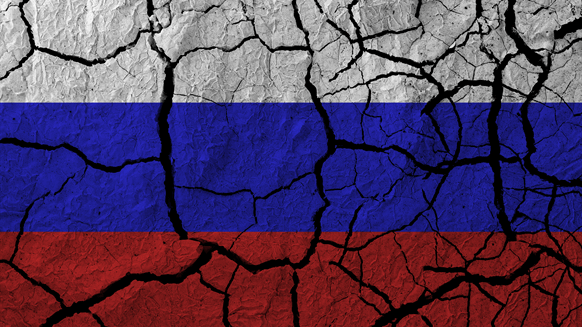Rystad Energy does not expect to see a significant increase in oil prices this week following the latest actions by the Wagner Group, Rystad Energy Senior Vice President Jorge Leon said in an oil market update sent to Rigzone on Sunday afternoon.
“The Russian paramilitary organization Wagner Group, on June 24, started an armed insurrection in Russia.
Within hours, however, the group announced it had abandoned the insurgency against the country’s armed forces, ending what could have been Russia’s first coup attempt in three decades,” Leon told the update
“Over the past 35 years, geopolitical events in major oil producers have increased oil prices by an average of eight percent in the five days following the start of the triggering event,” he added.
“Since this weekend’s short-lived event in Russia appears to be over, we do not expect to see such a significant increase in oil prices… [this] week,” he continued.
Leon went on to note, however, that Rystad believes geopolitical risk amid internal instability in Russia has increased.
“As such, we are likely to see a marginal increase in oil prices in the coming days, if the situation does not deteriorate further,” Leon said.
The analyst also pointed to a possible contagion effect in the countries of the former Soviet Union.
“Political unrest in other oil-producing countries in the region, such as Kazakhstan and Azerbaijan, could add an additional risk premium to oil prices,” Leon warned.
Wagner’s troop convoys
In the update, Leon noted that convoys of Wagner troops crossed from Ukraine into Russian territory, “seizing military facilities in the southern Russian cities of Rostov-on-Don and Voronezh before moving towards Moscow, halting its advance just 200 km from the Russian capital.” .
“Russian President Vladimir Putin issued an address to the nation on the morning of June 24, calling the events an insurrection and assuring citizens that it would be controlled by the authorities,” Leon noted.
“Within hours, Wagner’s leader, Yevgeny Prigozhin, announced that the group had abandoned its insurgency against the country’s armed forces,” he added.
“Amid the uncertainty of how the situation will develop, this seemingly short-lived insurgency has highlighted the internal instability within Russia’s political and military apparatus,” he continued.
Leon noted in the update that geopolitical uncertainty in major oil producers has not been uncommon in recent decades.
Highlighting geopolitical events in these oil producers over the past 35 years, Leon noted “the 1990 invasion of Kuwait by Iraq, the ensuing Gulf War, the 1992 coups in both Algeria and Venezuela, the US invasion of Iraq in 2002, the civil wars in Libya in 2011 and 2014, [and the] drone attack in Saudi Arabia in 2019”.
US reaction
On June 24, US Department of State (DOS) spokesman Matthew Miller revealed in a statement posted on the DOS website that US Secretary of State Antony J. Blinken had spoken with ministers from ‘Foreign Affairs of Canada, France, Germany, Italy, Japan and Japan. UK and the EU High Representative for Foreign Affairs and Security Policy “to discuss the current situation in Russia”.
“Secretary Blinken reiterated that America’s support for Ukraine will not change,” Miller said in the statement.
“The United States will remain in close coordination with allies and partners as the situation continues to develop,” he added.
On the same day, the UK government announced that UK Prime Minister Sunak, US President Biden, French President Macron and German Chancellor Scholz spoke “to discuss the situation in Russia and reiterate their continued support to the sovereignty of Ukraine”.
“This follows the convening of the G7 Foreign Ministers, which was attended by the Foreign Secretary,” the government added.
“The leaders have agreed to maintain close contact in the coming days,” he continued.
In a statement posted on his Twitter page on June 24, UK Foreign Secretary James Cleverly said that “following the events overnight involving the Wagner Group and the Russian military, we are monitoring the situation closely and in close contact with our allies.”
In a separate statement posted on Twitter the same day, which was translated from German, German Foreign Minister Annalena Baerbock said: “Since yesterday evening we have been watching developments in Russia very closely and we are in close contact with our international partners.”
“German nationals in Russia should definitely observe our adapted travel and safety instructions,” Baerbock added in the statement.
To contact the author, please send an email andreas.exarcheas@rigzone.com


